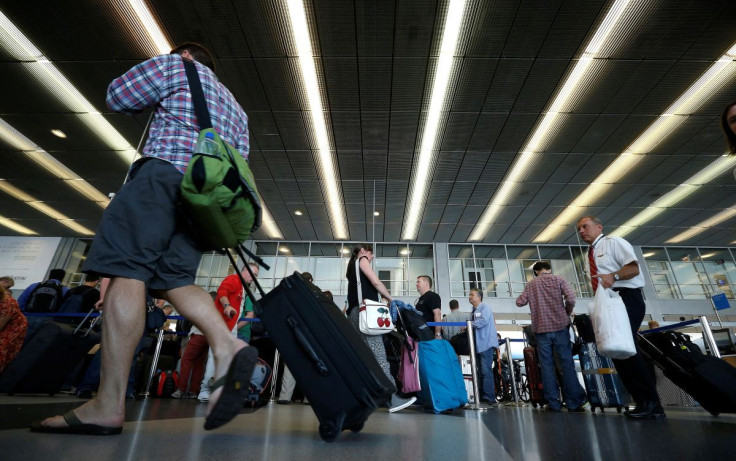JetBlue Takes Over Spirit Airlines, Here’s What That Means For Consumers
If it passes regulatory hurdles, JetBlue will officially own Spirit Airlines, buying its low-cost budget rival for $3.8 billion. Now, with a merger between the two on the horizon, airline travel could once again change for consumers who use both companies.
The merger, if it is a success, will see two very different carriers merge to become the fifth-largest in the United States, ranking behind American, Delta, United and Southwest. The two are expected to still operate separately until after the deal closes, but it's unclear what that will mean exactly. While JetBlue has an alliance with American in the Northeast, allowing both to sell seats on each other's planes, this would allow them to take over the actual planes and pilots—which allows JetBlue to expand, CNBC reports.
Getting bigger could help JetBlue with reliability, something that has plagued several airlines since post-Pandemic travel picked up and airlines experienced staff shortages. Leading to flight cancellations and delays on busy travel dates.
Despite being known as less reliable because of their ultra-low cost bare-bones airfares and basic offerings, Spirit and Frontier airlines actually didn’t rank among the worst with reliability in a Wall Street Journal ranking of airline performance from 2021. Frontier tied with American for sixth, while Spirit ranked 8th. JetBlue came in 9th in the survey.
While JetBlue fared better in the overall ranking, the study found that the carrier had the highest rate of extreme delays and incidents where passengers had to wait on the tarmac for at least two hours. They also had the second-fewest on-time arrivals and second-most customer complaints.
In addition to potentially improving their reliability further by expanding their fleet with the buyout, JetBlue is also potentially changing things for consumers by also taking a cheaper competitor out of the running. And while they could potentially have a larger fleet of planes and routes with the acquisition, the comforts JetBlue is known for—such as extra legroom, seatback TVs with live programming and better snack options—will force them to still charge more than Spirit. This could be an issue for those who opted for an airline like Spirit in the past simply for savings, and who were willing to forego luxuries.
For example, a consumer seeking to fly from New York’s LaGuardia airport on Monday, August 15 to Orlando, Florida, would see fare options ranging from $139-$378 for a ticket. Those seeking similar flights offered by Spirit would see airfares ranging from $118-$269.
“Spirit might not be an elegant experience, but they are cheap,” William Kovacic, a professor at the George Washington School of Law and a former chair of the Federal Trade Commission said. “If they disappear as an independent enterprise...is that going to remove a source of downward pressure on price?”

© Copyright IBTimes 2024. All rights reserved.




















